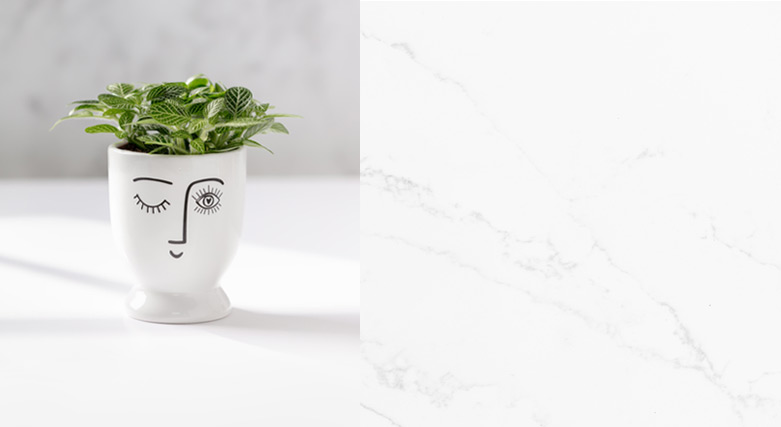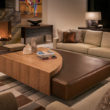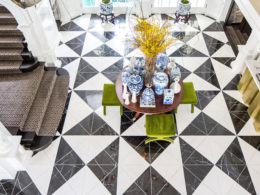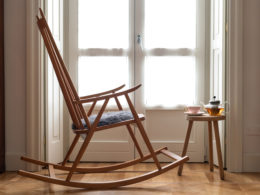A Frequently Asked Questions (FAQ) page is a one-stop destination on your website that gives your visitors valuable information about your interior design company and your work process. This article focuses on the importance of having a well-structured FAQ page, and the most common questions that your clients are looking for on your website, before hiring you. When a FAQ is well-prepared, it will save your team from having to answer a ton of questions.
Importance of Having an FAQ Page on Your Website
Unlike sites that have a small tab for FAQs at the bottom of a page, or do not have one at all, it is important that you place the tab for the FAQ page prominently on your website, because it is crucial to your business for several reasons.
1. Addresses Visitor Questions
This one is the most obvious and important reason to invest time into developing a strong FAQ page. As a designer you already know many of your clients’ concerns. A blog can be a great place to properly address those concerns. However, blogs aren’t efficient. Visitors to your website are looking for one page which addresses all their questions, rather than having to comb through multiple blog entries. Tip: You can always add links to related blog posts in your answers on the FAQ page.

2. Save Time and Money
Having a solid FAQ page saves you both time and money as clients can find the answers to commonly asked questions on their own. Your client meeting sessions can focus on the actual work involved, rather than be about explaining your process, fee structure, etc.
3. Spruce Up Your SEO Game
Curate your FAQs carefully because an FAQ page is an SEO goldmine. This is a chance for you to use keyword research strategies and give your visitors exactly what they are looking for. In other words, potential clients could be looking for answers to how interior designers in general work and your site could appear in search results for them. This is especially valuable if you work nationally or provide e-design services.
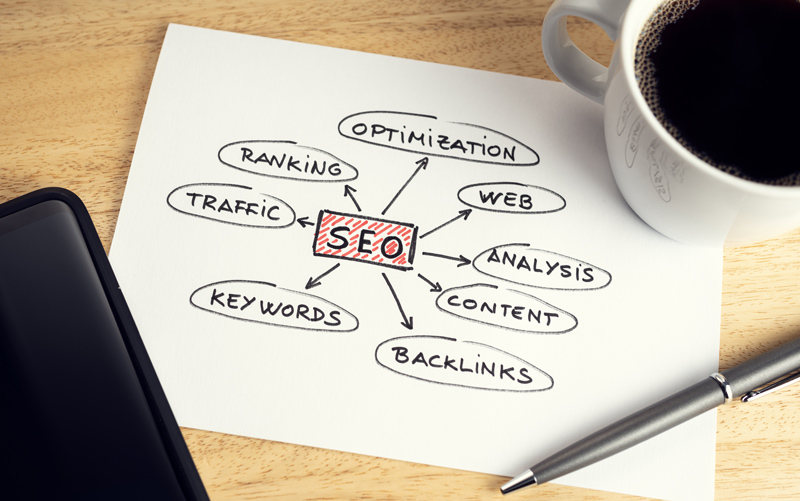
Search engines appreciate well-defined answers to specific client questions, and this will boost your visibility on search pages.
4. Increase Traffic to Your Website
It is not necessary that your FAQ answers are too detailed, when you can instead direct them to another page or a blog post that offers an in-depth explanation. This not only provides them with the details they desire, it also keeps them on your website longer which increases your site’s engagement metrics.
5. Prove Your Expertise
FAQs are a great way to show off your expertise in the area of interior design. This is also a great way to highlight and market the finer aspects of your business. By being able to answer all questions clearly and precisely, you are able to create trust in your capabilities as an interior design pro.
6. Be Transparent
Do not be afraid to reveal the details of your business, especially when it comes to fees, pricing structures, and terms of service. This is a good way to weed out those who can’t accept your prices or terms.
7. Increase Conversions
An FAQ page is an opportunity to insert Call To Action buttons to encourage visitors to call you, schedule a consultation, or subscribe to your email list.

8. Update Regularly
Even though you planned your FAQs well, there will always be a few questions that you haven’t thought of. When clients bring new questions your way, make sure to jump onto your FAQ and add them. Also, add a quarterly commitment to review your FAQs and see if they are still accurate answers. By reviewing them four times per year, you’ll refine them over time and make them better. You’ll also be reminded of what content is on the page, which helps in responding to client inquiries. The next time they ask one of your FAQ questions, just send them the link instead of the answer. Or, copy and paste the answer. It’ll save you a ton of time.
9. Structure It Right
Think of your FAQ page as a coaxing channel for your visitors. Structure your FAQ’s in such a way that it answers client questions systematically. Group together questions that fall under the same umbrella. Gradually lead them through an introduction to your company, your processes, and the benefits of working with you, so that by the end of the page, your client is ready to forge a partnership with you.

Important FAQs to Publish on Your Website
Make sure you are able to provide crisp, concise answers to the following questions on the FAQ page on your website. Questions are generally categorized into four types, based on what clients wish to know:
Service
- What kind of interior design services do you offer?
- What services do you offer other than interior design?
- What if I need additional help outside the scope of the project?
- Is there a minimum or maximum project size that you work with?
- Do you specialize in any particular style of interior design?
- Can I use your services for shopping furniture/fabric/fittings only?
- What if my design requirement is away from the location of your studio?
- Does the designer or client procure the contractors, builders, and other trades?
- Can you work with my existing contractor?

Process
- What is the first step to hiring you?
- Can you explain your design process?
- On what basis do you assess whether we are a good fit for each other?
- What if we start the job and find out we are not a good fit for each other?
- Can a project be started without a contract?
- How long would it take to complete my project?
- What happens if the project takes longer than expected?
- How many designers will be working on my project?
- How involved can I be in the decision-making part of the project?
- How often will we be communicating with each other throughout the project?
- What if I am unhappy with the final design?
- What types of paperwork/documents/certificates am I expected to provide?
- If I opt for full-service design will I still have to provide all the paperwork?
- Will you show me a mood board or renderings before the ordering begins?
- What if I have to put my project on hold due to unforeseen circumstances?
- What if my project gets delayed due to issues I have with the interior designer?
- Can I change my mind after I have approved the designs?
- What if the designer tries to impose their ideas on me?
- Do you have catalogs of materials and furniture that I can choose from?

Finances
- How much and how do you charge?
- Is there a separate fee for project management apart from design fees?
- How much do you charge for an in-house consultation?
- Can I afford an interior designer?
- Is it worth it to hire an interior designer to design a small space?
- Can you work within my budget?
- Can I buy my own furniture and accessories?
- Will there be a discount if I use my existing furniture?
- Do I have to purchase items only through you?
- What if I do not like the items you source?
- Can I return an item I did not like?
- Will I get a refund on items I did not like?
- What if I have to stop the project due to a lack of budget?
- What if an item I liked is no longer available?
- Why is another designer charging less than you?
- Do you offer free consultations?
- Do you offer discounts?
- Will I get a discount if I hire you to do multiple rooms?
- How do you make your money?
- Do you get profits from vendors for the products I purchase from you?
- Do you mark up merchandise?
- Will you be able to get me a discount at my favorite furniture store?

Designer / Company
- Do you or your company have a specific design style?
- How long have you been in the business?
- How many people work on your team?
- Can you show me examples of some of your best work?
- Will the principal designer be working on my project?
- Why should I hire you and not anyone else?
Conclusion
As seen, an FAQ page can be more than ‘just’ a page for questions and answers. If executed properly, it can boost your visibility online and increase traffic to your website. And, it can help you weed out the wrong clients and get the right ones to sign on with you. The format need not be only plain text – you can unleash your creativity and create video or pictorial descriptions to get your point across.
Are there any other FAQs that you think we should include in the list? Are you finding your FAQ page to be helpful to clients? Let us know in the comments below.

